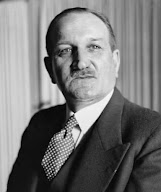Previous open threads archived here.
Tuesday, December 31, 2024
The thread you’ve been waiting for
Saturday, December 28, 2024
Boczar on Immortal Souls
“The book's title is an homage to David Hume, and Feser has certainly taken Hume to task, giving cogent arguments for the reality of the self (chapter 2), freedom of the will (chapter 4), immateriality of the intellect (chapter 8), and more…
It is with contemporary developments in the philosophy of mind where Feser is at his best, and readers will not be disappointed with his critique of positions such as Buddhism's no-self doctrine (chapter 2)…
Feser again is at his best in cogently establishing the immateriality of the intellect. He puts forth various arguments. His most powerful argument is a modified version of James Ross's argument from the indeterminacy of the physical (chapter 8)… One of the unique contributions that Feser makes to contemporary literature is his defense of the immateriality of the intellect from its simplicity (chapter 8). Readers should pay close attention to this powerful argument.”
Wednesday, December 18, 2024
Gilson on philosophy and its history
Monday, December 16, 2024
Nicholson on Immortal Souls
"As its title suggests, Immortal Souls by Edward Feser provides a robust philosophical defense of the immortality of the soul. The scope of the book reaches far beyond this one topic, however, as Feser methodically exposits and defends the entire Aristotelian-Thomist metaphysics of the human person, addressing in depth such topics as personal identity, freedom of the will, perception and cognition, phenomenal consciousness, and artificial intelligence. The result is an extraordinarily comprehensive and detailed sweep through contemporary philosophy of mind, addressing nearly every major topic of interest. Feser makes a forceful case that Thomism remains a live option, able to resolve many seemingly intractable problems at the intersection of philosophy and the sciences of cognition…






